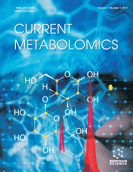Abstract
Background: Fecal water provides information on the state of the gut microbiota and host physiology and is a common biofluid to study, particularly for metabonomic purposes. Despite the interest in fecal water, a method of preparation has yet to be standardized. Current methods of preparing fecal water usually involve an extraction protocol combined with ultracentrifugation and filtration steps. If metabonomic analysis is the final means of examining fecal water samples, consideration should be given to the potential impacts of these preparation steps on the metabolites observed.
Objective: This work examines metabonomic effects of ultracentrifugation during fecal water preparation, and provides an easily adaptable method based on considerations to metabonomic impacts of the procedure.
Methods: Both fecal water (prepared from human stool samples) as well as a controlled surrogate for fecal water samples (prepared from in vitro fecal microbial communities) were used to perform systematic evaluations of various preparation steps, and used metabonomic profiles to assess the protocols’ impact on the sample.
Results: 52 metabolites were observed and found that ultracentrifugation speed decreased metabolite concentrations by approximately -2% per 10000 rpm increase, with one exception. P-cresol increased by approximately +50% per 10000 rpm. Upon investigation of the potential sources of p-cresol, we found evidence that these were tyrosine-rich cell proteins which broke down upon ultracentrifugation.
Conclusion: Based on these findings, we suggest that ultracentrifugation is an effective means of preparing fecal water samples, with negligible impact on metabonomic analyses, though measurement of p-cresol concentrations should be treated with discretion.
Keywords: Fecal water, metabolomics, metabonomics, microbiota, MLR, preparation, ultracentrifugation.
Graphical Abstract
 47
47 11
11








.jpeg)








